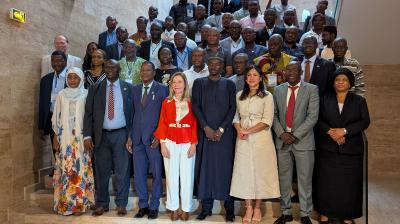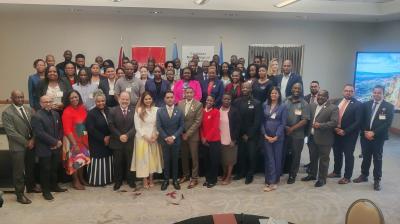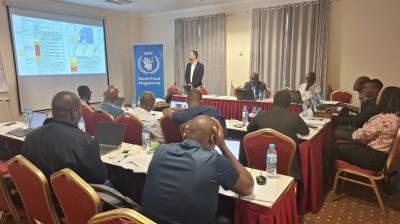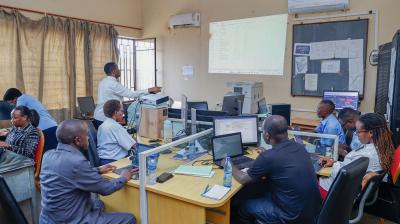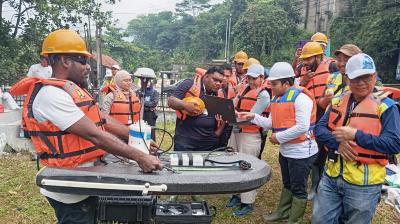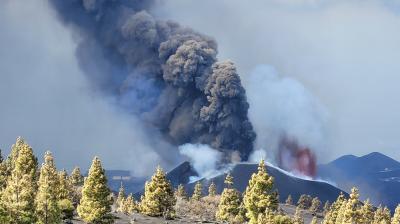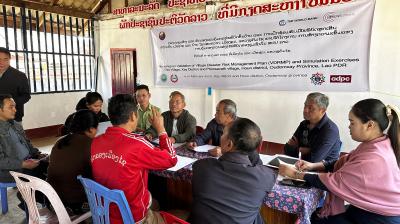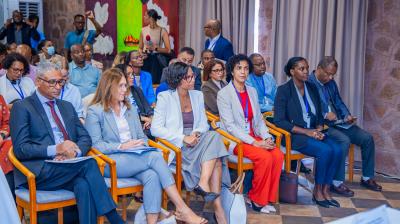IDB joins UNDP to Support Data Systems to Tackle Climate Change in Latin America & the Caribbean
New York - The Inter-American Development Bank (IDB) and the United Nations Development Programme (UNDP) signed an agreement that will help the collection and sharing of critical climate and weather data, advancing efforts to support climate adaptation and enhance regional climate coordination in Latin America and the Caribbean.
- News was produced by:
- Inter-American Development Bank (IDB)

The agreement gives the IDB, as an implementing entity, access to financing through the Systematic Observations Financing Facility (SOFF), which provides funding and technical assistance for countries to improve weather forecasts, early warning systems and climate information services.
The agreement also makes the IDB one of the first Multilateral Development Banks (MDBs) to access a UN-administered Multi-Partner Trust Fund and exemplifies work that MDBs have been doing with the UN and UN agencies to enhance collaboration.
SOFF is a financing mechanism established in 2021 by the World Meteorological Organization (WMO), the United Nations Environment Programme (UNEP) and UNDP to support the collection and sharing of critical weather and climate data around the world. It follows the standards of the Global Basic Observing Network (GBON) and targets countries with significant gaps in weather and climate data, prioritizing Least Developed Countries and Small Island Developing States.
The IDB is one of nine SOFF implementing entities that play an important role in supporting countries‘ meteorological and hydrological services development. The IDB will first implement the SOFF program in Belize with a grant of over $800,000 from the SOFF steering committee, followed by projects in The Bahamas, Barbados, Ecuador, Guatemala, Guyana, Haiti, Jamaica, St. Kitts & Nevis, and Trinidad & Tobago.
This partnership aligns with the IDB’s strategy on Biodiversity, Natural Capital, and Climate Action. SOFF’s weather data and capacity building will support climate adaptation, strengthen regional coordination, and reduce vulnerability to climate change for countries and communities. The program also strengthens the IDB’s regional initiatives, including América en el Centro and One Caribbean, by mobilizing resources for these efforts and promoting collaboration among countries.
SOFF is currently funded by a pool of donors including Austria, Belgium, Canada, Denmark, Finland, the Kingdom of the Netherlands, Nordic Development Fund, Norway, Ireland, Iceland, Spain, and the United States. It operates across three phases: the Readiness Phase, which provides technical assistance to assess data gaps and develop National Contribution Plans; the Investment Phase, which offers grants to upgrade or install new surface land or upper-air stations and build capacity; and the Compliance Phase, which delivers results-based financing and peer advisory to maintain data-sharing stations according to GBON standards.
The IDB played a crucial role in shaping SOFF’s design, collaborating with the WMO, UNEP, and UNDP and partners including other Multilateral Development Banks (MDBs) throughout 2020 and 2021, to align SOFF with the needs of its member countries.
IDB President Ilan Goldfajn said, ” By enhancing evidence and data for climate and environmental monitoring, the partnership with SOFF will generate crucial information that will expand countries’ preparedness and resilience to climate change. At the IDB, we are paving the way for other MDBs to access SOFF and explore further collaborations with UNDP-administered funds.”

“Many of the countries most vulnerable to climate change lack the basic observational data crucial for monitoring, understanding and predicting weather and climate patterns. This gap doesn’t just affect local forecasts, it impacts our global ability to respond to climate challenges. But SOFF is a fantastic example of how action can be taken at speed and scale to fill this gap,” says Prof. Celeste Saulo, Secretary-General of the World Meteorological Organization and co-chair of the SOFF Steering Committee.
UN-MPTF Office Executive Coordinator Alain Noudéhou noted that, “The UN Multi Partner Trust Fund Office (MPTFO) is proud to sign this landmark agreement with the Inter-American Development Bank (IDB). This agreement establishes a strong partnership between the SOFF and the IDB and will leverage additional resources towards closing the basic weather and climate observations data gap. It is our hope that the agreement will pave the way for an expanded cooperation with the IDB in UN pooled funds and in support of global development priorities and the achievement of the SDGs.”
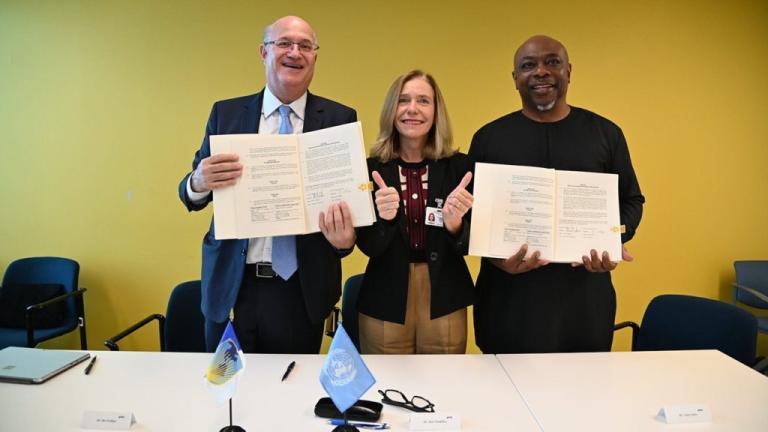
About the IDB
The Inter-American Development Bank (IDB) is devoted to improving lives across Latin America and the Caribbean. Founded in 1959, the IDB works with the region’s public sector to design and enable impactful, innovative solutions for sustainable and inclusive development. Leveraging financing, technical expertise and knowledge, it promotes growth and well-being in 26 countries.
About the UN Multi-Partner Trust Fund Office
The Multi-Partner Trust Fund (MPTF) Office is the United Nations centre of expertise on pooled funding instruments. Hosted by the United Nations Development Programme (UNDP), it provides fund design and administration services to multi-stakeholder coalitions, including the UN system, governments and non-governmental partners. Commemorating 20 years of pooled funding in 2024, The Office has administered pooled funds in over 130 countries, with a total cumulative portfolio of over US$ 19 billion, investing in programmes overseen by more than 50 participating United Nations organizations.
About SOFF
SOFF is a UN specialized fund co-created by WMO, UNDP and UNEP to close the climate and weather observations data gap in countries with the most severe shortfalls in observations, prioritizing Least Developed Countries (LDCs) and SIDS. SOFF provides long-term financial and technical assistance to support the acquisition and international sharing of basic weather and climate observations, according to the internationally agreed Global Basic Observing Network (GBON) regulations. SOFF is a foundational element and delivery vehicle of the UN Early Warnings for All Initiative.


